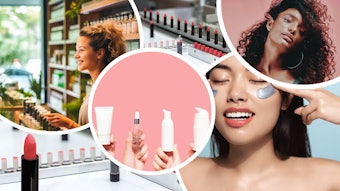
Trust, connection, value and uncertainty are at the heart of Mintel's newly released 2024 global consumer trend report.
Consumers' Trust Crisis
On the trust front, Mintel reports that "52% of German consumers say they don’t trust companies to be honest about their environmental impact."
Similarly, "60% of U.S. consumers agree that many companies are just pretending to be sustainable."
This reflects a wider crisis of confidence.
Mintel's Being Human trend, for instance, suggests that brands will need to highlight "heritage, leveraging nostalgic elements, and underlining the reliability and trust that they’ve earned" in order to compete.
The firm also points out that general "trust in institutions continues to decline," leading to ongoing scrutiny of brands. In addition to heritage, mentioned above, Mintel suggests that brands center "consistent delivery of functionality at the core of their message."
This theme comes up more than once in the report. Elsewhere, Mintel claims, "Emphasizing the functional aspects of a product will again rise in importance..."
This perhaps reflects trends such as the rise in expert-backed/clinical beauty.
Overcoming Rising Disconnection
The connection angle, meanwhile, is reflected in a number of areas, primarily related to technology. Mintel's Being Human concept points out that "a wider gap" has formed "between early adopters and tech-resistant consumers."
This challenges brands to deliver to both groups and creates a premium on human connection, whether through artisanal offerings, human customer service or in-person services.
This mindset feeds into Mintel's More Than Money concept, which points out that "70% of Thai consumers are interested in, and willing to pay more for, beauty products that are formulated with natural ingredients.
As consumers become more focused on value beyond price, these types of demand patterns will continue to grow. Products and brands will therefore need to satisfy "emotions and lifestyles" and ensure they align with shoppers' values.
The Uncertainty Conundrum
Trust, connection and value all feed into another key theme in Mintel's report: uncertainty. Mintel notes that "consumers feel ever more uncertain about the world around them," requiring brands to stand out as reliable "pillar[s] of stability."
"Climate change will have a dramatic impact on interpersonal relationships as consumers realize the fragility of the planet," Mintel notes. Indeed, 2023 has been a year of unprecedented climate events, capped off with reports that 2023 could be the hottest year on record.
In this context, new brands will have to focus on trust to compete with more established players.
Whether established or just starting up, brands will continue to be held responsible for their climatic impact. To illustrate, Mintel points out that "77% of Chinese consumers agree that beauty and personal care brands should take the main responsibility for sustainability.
This reflects distrust that governmental institutions will step in with meaningful climate action. Instead, shoppers will be holding brands responsible.
This will require transparency beyond generic "environmentally friendly" claims, Mintel argues.
At the same time, sustainable innovations must neatly fit into consumers' lives without creating trade-offs. In beauty, this should become increasingly easier as the range or sustainable packaging and ingredient tech continues to expand.
Mintel warns the skeptics: "Climate inaction will be a costly choice for companies and brands, especially as the effects of the climate crisis become increasingly visible in everyday life."
Taking action "has the potential to generate a feel-good effect," Mintel argues, "helping consumers alleviate guilt about not doing enough for the environment, and concerns about how the climate crisis will affect them."










